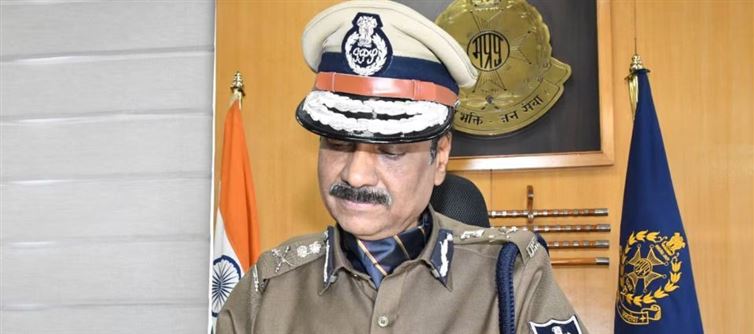
Madhya Pradesh DGP Kailash Makwana’s recent statement that “police alone cannot curb rape incidents” and that factors like the internet, mobile phones, pornography, and alcohol are contributing to the rise in such crimes has sparked widespread backlash. While his comment attempts to highlight the broader socio-cultural issues surrounding sexual violence, it came across to many as an evasion of law enforcement’s responsibility. In a country where crimes against women remain a pressing concern, the public expects those in power—especially senior police officials—to lead with accountability and decisive action, not pass the blame onto technology or societal trends.
The backlash was swift and sharp. One user on social media remarked, “Then this DGP should resign if he can’t even take accountability & responsibility of protecting women,” echoing the sentiment that leadership must start by owning the challenges within their domain. Another netizen pointed out, “But police can ensure culprits get proper punishment, but they are not doing it, especially when political people are involved,” highlighting the frequent failures in ensuring justice when the accused have political connections. These criticisms reflect public frustration with not just the occurrence of such heinous crimes, but the failure to deliver swift, unbiased justice in their aftermath.
While it's true that rape is a complex issue influenced by deep-rooted cultural, social, and psychological factors, the role of the police remains central in both prevention and prosecution. The public wants reforms, better policing, gender-sensitive training, and a justice system that works without fear or favor. The DGP’s comments might have been aimed at starting a broader dialogue, but without reinforcing a firm commitment to law enforcement’s role in tackling the problem, they risk sounding like excuses. The focus must remain on improving accountability, closing loopholes in investigation and prosecution, and building a system where every victim feels safe to report—and every perpetrator is brought to justice.
The backlash was swift and sharp. One user on social media remarked, “Then this DGP should resign if he can’t even take accountability & responsibility of protecting women,” echoing the sentiment that leadership must start by owning the challenges within their domain. Another netizen pointed out, “But police can ensure culprits get proper punishment, but they are not doing it, especially when political people are involved,” highlighting the frequent failures in ensuring justice when the accused have political connections. These criticisms reflect public frustration with not just the occurrence of such heinous crimes, but the failure to deliver swift, unbiased justice in their aftermath.
While it's true that rape is a complex issue influenced by deep-rooted cultural, social, and psychological factors, the role of the police remains central in both prevention and prosecution. The public wants reforms, better policing, gender-sensitive training, and a justice system that works without fear or favor. The DGP’s comments might have been aimed at starting a broader dialogue, but without reinforcing a firm commitment to law enforcement’s role in tackling the problem, they risk sounding like excuses. The focus must remain on improving accountability, closing loopholes in investigation and prosecution, and building a system where every victim feels safe to report—and every perpetrator is brought to justice.




 click and follow Indiaherald WhatsApp channel
click and follow Indiaherald WhatsApp channel